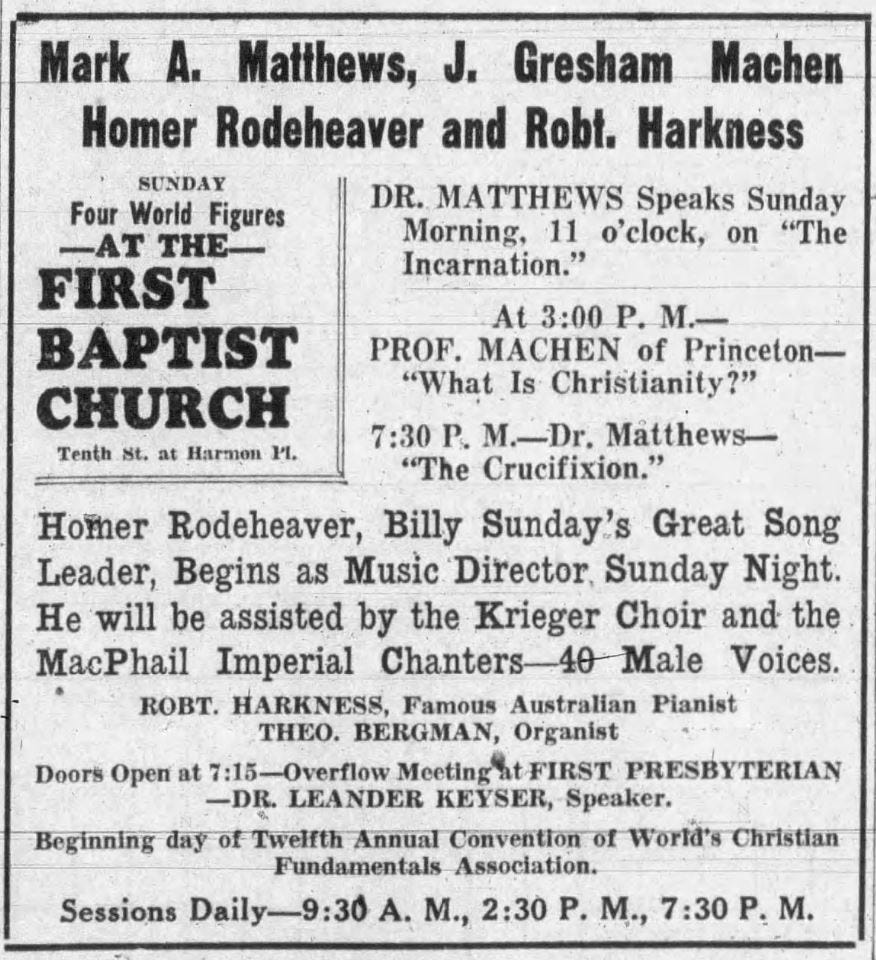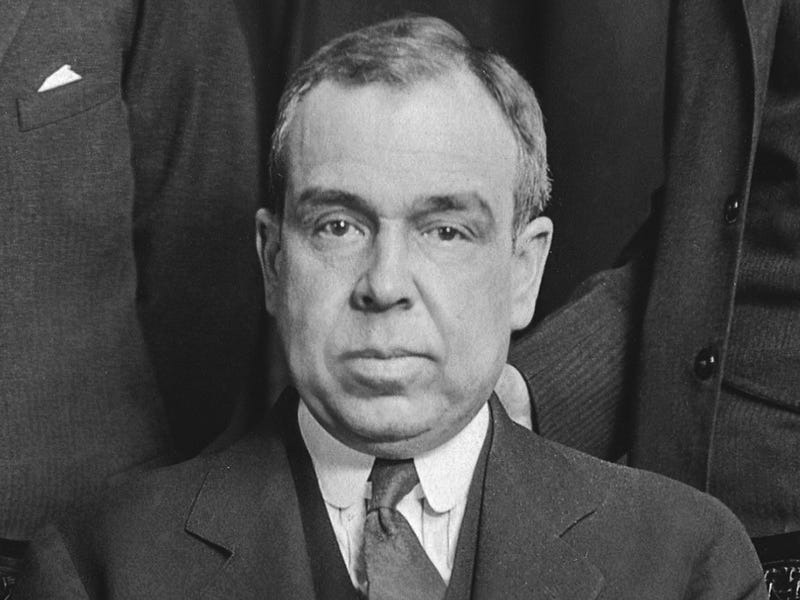Speaking of the Reformed faith in 1935, Machen said:
Being true, it is true for everyone. It is true for Methodists and Lutherans just as much as Presbyterians, and we cannot treat as of no moment the differences which separate us from Methodists and Lutherans without being unfaithful to the Word of God.
Does that mean that we cannot have Christian fellowship with our Methodist or our Lutheran brethren? It means nothing of the kind. On the contrary, we can have very precious Christian fellowship with them.
At that point I want to utter a word of personal testimony. I just want to say that in these struggles of the last few years against blatant unbelief in the Presbyterian Church in the U.S.A., one of the most precious gifts that God has given me - and I have no doubt but that many of those with whom I have been associated would say the same thing - has been the Christian fellowship that I have enjoyed with many of my Lutheran brethren, especially those of the “Missouri Synod.” How often, when I have felt tempted to be discouraged, has some message come to me from them bidding me be of good courage and remember that the battle is the Lord’s! How often have I in turn rejoiced when I have thought of the way in which that noble Church - I mean the Missouri Synod - cultivating Christian learning at its great Concordia Seminary and bringing up its people truly in the nurture and admonition of the Lord, has stood firmly against the unbelief and indifferentism of the day!
Will those brethren be offended if they read what I have written regarding my devotion to the Reformed Faith and my belief that it is the system of doctrine taught in God’s Word?
I feel rather sure that they will not. You see, one of the things that unite me so closely to them is that they are not indifferentists or interdenominationalists, but are profoundly convinced that it is necessary to hold with all our souls to whatever system of doctrine God’s Word teaches.
I wish indeed that they were adherents of the Reformed Faith, as they no doubt wish that I were a Lutheran. But I stand far closer to them than I should stand if they held the differences between the Reformed and the Lutheran system to be matters of no moment, so that we could proceed at once to form an “organic union” based upon some vague common measure between the two great historic branches of the Protestant Church.
Darryl Hart asked years ago why The Gospel Coalition has charismatics, generics, presbyterians, Anglicans, and baptists but no Lutherans. It’s still a good question. You’d think that since modern-day, evangelical ecumenism is far more informal than the type being pushed in the early 20th century, the diversity seekers would allow for such a thing. Now, we’re not saying Hans Fiene writing for TGC would be a good thing, but it would be entertaining while it lasted. Maybe it really is about ethos and sentiment rather than doctrine…and Lutherans are just too cranky for the Coalition.

Machen did address non-presbyterian groups fairly often, including the World’s Christian Fundamentals Association (ad above), which was arguably the TGC of its day. You wonder how much he enjoyed the missional, minstrel stylings of the “Famous Australian Pianist” and “Billy Sunday’s Great Song Leader.” We have an idea of how Machen might have taken it:



